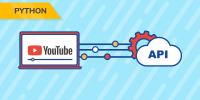Description
In this course, you will learn:
- How a computer reads and interprets programming code
- Writing code, running it, then changing it depending on the results is known as the write-run-debug cycle.
- How to write consecutive lines of code, called procedural programming.
- Variables, their kinds, and their function in complicated programs.
- For arithmetic operations, exponents, and more, there are mathematical operators.
- For evaluating relative values or set membership, relational operators are used.
- Complex logical assertions can be resolved using Boolean operators.
Syllabus:
- Computing. The fundamentals of how computers work, what program code is, and how to get set up for the rest of the course.
- Programming. The basic principles of computer programming: writing and running code, evaluating results, and compiling vs. executing.
- Debugging. The common results of running program code, and how to use those results to inform the revision of your code.
- Procedural Programming. The fundamental approach to program code: writing sequences of lines of code that run in order to accomplish an objective.
- Variables. Creating and modifying variables, tracing how their values may change as a program runs, and understanding the role of data types.
- Logical Operators. Working with relational (greater than, less than, equal to) and logical (and, or, not) operators to make decisions in code.
- Mathematical Operators. Adding addition, subtraction, multiplication, division, modulus, and exponents to your code, and seeing how they work with unexpected data types.









